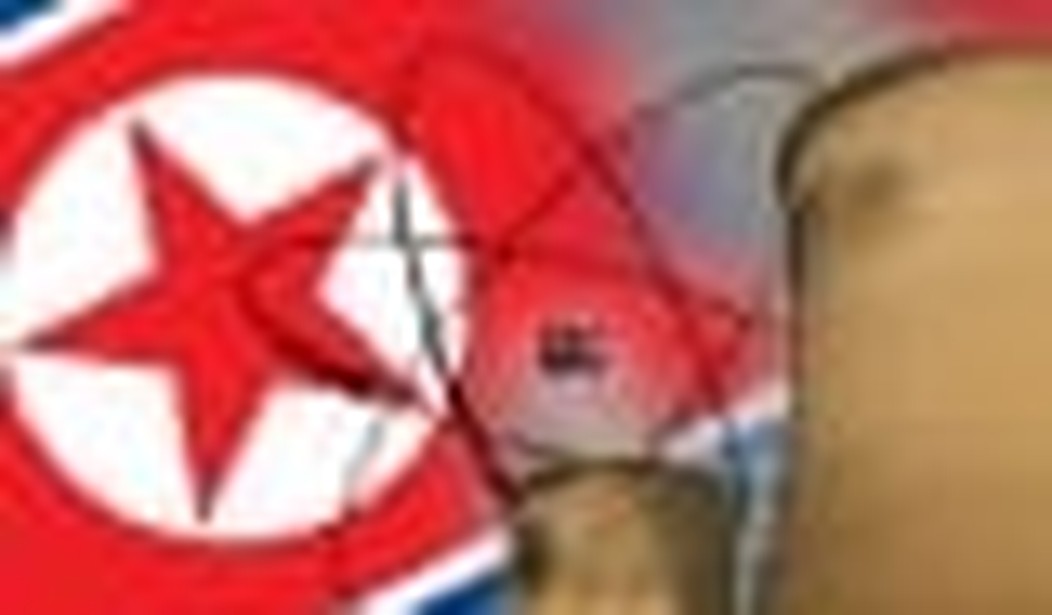On Friday, the New York Times reported that the Obama administration’s Nuclear Posture Review, to be released in February, will focus on nuclear terrorism. This will be the first time the review makes countering this threat a central goal of the country’s nuclear planning.
What is the best way to stop nuclear terrorists? Of course, we can — and should — break up al-Qaeda cells, secure loose nukes, and scan our cities for tell-tale signs of radiation. Yet if that is our emphasis, we are playing a losing game.
Why? On an average day, people successfully smuggle 21,000 pounds of cocaine and marijuana into the United States. On an average day, 29,000 trucks, 1,100 buses, 27,000 cargo containers, and 295,000 cars cross into America. On an average day, 124,000 pedestrians enter our country legally and another 1,500 people do so illegally. Should we be confident that, in the midst of all this traffic and over the course of decades, we will be able to find disassembled nukes, softballs of uranium, and oranges of plutonium? We may catch shipments now and then, but all it takes is one failure to change the course of history.
Yet we are not doomed to suffer a nuclear detonation on our soil. Terrorists, as capable as they are, cannot enrich uranium or reprocess plutonium. In other words, they cannot produce fissile material, the cores of nuclear devices. They can steal such material, but that is also an extremely difficult task, even in chaotic Pakistan, whose army has been penetrated by terrorist sympathizers. As a practical matter, nuclear terrorists need to purchase uranium or plutonium, and the most likely seller is North Korea.
In April 2003 in Beijing, a North Korean diplomat told one of ours that his country reserved the right to sell nuclear weapons. Pyongyang has a history of carrying through on its threats. This decade, it has sold to Iran weapons-grade uranium, which spilled on the tarmac of the Tehran airport in May 2004, and a nuclear reactor, which the Israelis destroyed in the Syrian desert in September 2007. Iranian technicians reportedly witnessed both of North Korea’s nuclear detonations, in October 2006 and May of this year. There is evidence that the North has sold plutonium to Iran and, by way of Pakistan, uranium to Libya. There is one inescapable conclusion: North Korea poses one of the gravest threats to the international community.
So what is the Obama administration doing to stop the militant state from destroying the world as we know it? The president wrote a letter to Kim Jong Il, its ailing leader. In the epistle, delivered by envoy Stephen Bosworth on December 9 in Pyongyang, Mr. Obama proposed the establishment of a liaison office in the North. Although details remain sketchy, the concept is that the office is a reward to Kim for returning to the Beijing-sponsored six-party “denuclearization” talks. These negotiations, which began in August 2003, have not been held since last December. Pyongyang pulled out of the talks in April and said it would not return until the United States dropped its “hostile policy.” The theory, apparently, is that the offer to upgrade relations is proof of a new friendly approach to the North. Perhaps the proposal will result in a resumption of the talks, but by now virtually nobody thinks Chairman Kim will ever agree at the bargaining table to give up his nukes.
So why is the Obama administration trying to restart negotiations that have no hope of disarming Kim? Victor Cha, the former Bush administration official, suggests that Bosworth went to Pyongyang to fail. Failing, his theory goes, would move the Chinese to do something. “Bosworth could go there and come back and say the North Koreans are not serious,” Cha said on the eve of the trip. Andrei Lankov, a keen Pyongyang observer based in Seoul, does not believe Kim can be talked out of his most destructive weaponry. Yet Lankov thinks it makes sense for Washington to continue the dialogue. That will, among other things, help undermine Kim’s control of information.
There is no doubt that we can destabilize the Kimist state by engaging it, but as the dialogue continues, the North Koreans get more opportunity to merchandise nuclear weapons to rescue their failing economy. Henry Kissinger believes Kim is stalling. Time, as they say, is not on our side, and the Obama administration is apparently giving up trying to disarm North Korea. Instead, Washington looks as if it is merely trying to contain Kim — or ignore him.
Yet Kim Jong Il cannot be contained. Both he and his dad — the only two rulers North Korea has ever known — have used violence to upset status quos they found to be unacceptable. We deterred the Soviet Union for decades, but that was only because the Kremlin’s leaders were horrified by the prospect of horrendous casualties. We cannot assume the same about Kim Jr. After all, he adopted policies that could only result in the deaths of hundreds of thousands and perhaps millions of his fellow Koreans, and that is in fact what happened in the great famine of the mid-1990s. Therefore, we cannot assume that Kim can be deterred by the prospect of massive death.
This means we have no choice but to disarm him. So here’s an urgent message for President Obama. The best way to prevent nuclear terrorism is to take away all of North Korea’s fissile material. This will not be easy, but at this moment, you are not even trying.









Join the conversation as a VIP Member